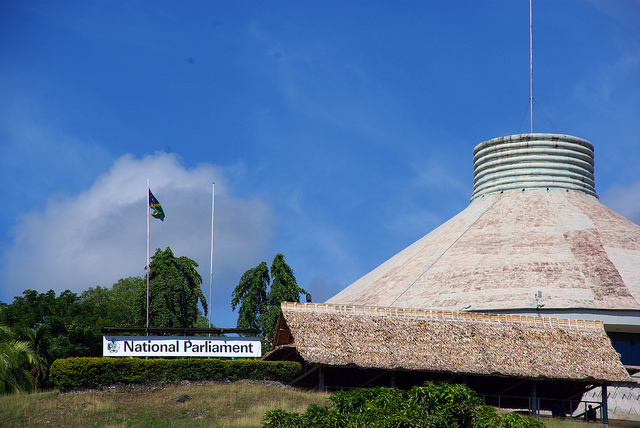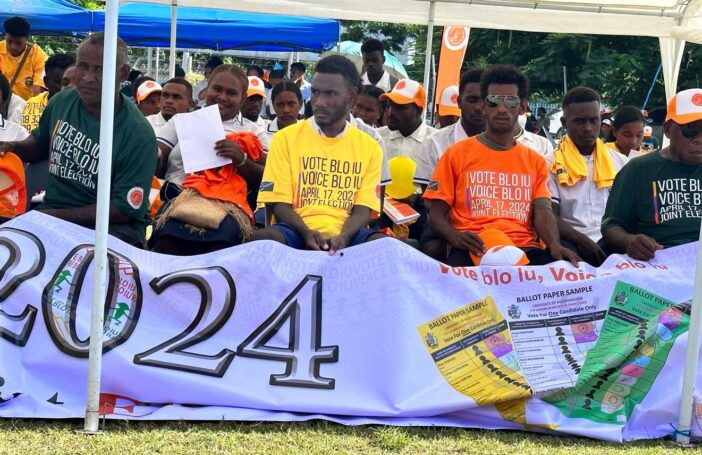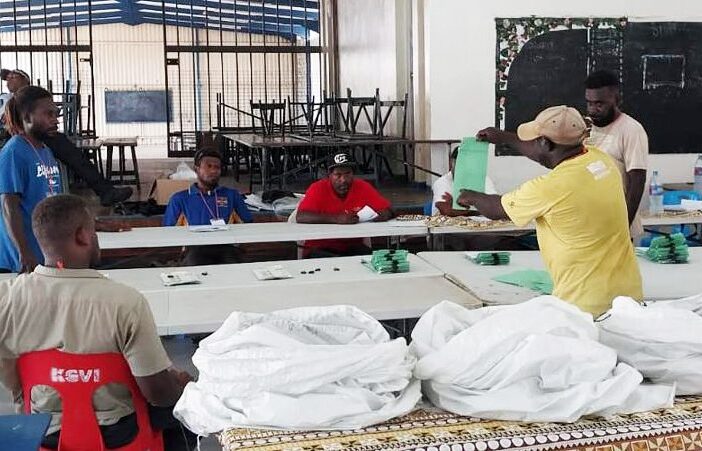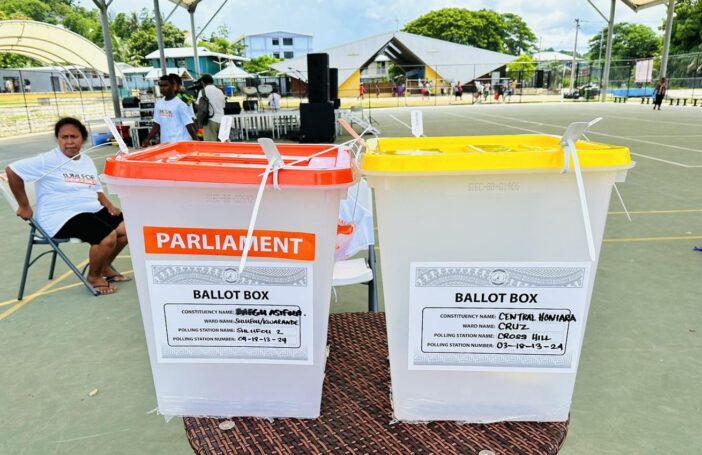The recent political rows and defections within Manasseh Sogavare’s Democratic Coalition for Change Government, the tabled no confidence motion, and the threatened change of government in between elections are all too familiar.
Solomon Islands politics resembles a game of musical chairs with serious costs for political stability and good governance. Political unpredictability, floor crossing and no confidence votes have been recurring in Solomon Islands politics since independence in 1978. In recent years, reasons used by individual MPs to justify defections to either side of the house involved disagreements on how aid money is redistributed, and allegations of leadership incapability and even dictatorship. Conflicting policy positions or ideological principles were rarely the basis of such defections.
Even though the most recent no confidence motion was seen off, the government will still not be immune to political flux. As such, decisive measures must be adopted, or future governance and development efforts will continue to be held hostage to political instability. Without being too prescriptive, there are feasible actions which can be taken to break this cycle of political uncertainty and instability.
First, it is important to note that the current political impasse has occurred despite the enactment of the Political Parties Integrity Act 2014 (PPI Act) before the national general elections. The PPI Act aimed to ensure political stability by facilitating the registration of parties and the formal affiliation of successful independent MPs to officially registered political parties should they wish to be included in coalition governments. Unfortunately, the intentions of the PPI Act were compromised and neglected.
To address challenges related to the instability of political parties, Solomon Islands might seriously consider reforming the country’s political system, possibly by adopting positive aspects of other systems elsewhere in the Pacific. For instance, in Samoa there is provision requiring candidates to be registered as members of a political party if they wish to form government. Under its standing orders, a political party is recognised only if it secures at least eight MPs in the general election. Independent MPs and those who resign from their parties are not allowed to join other political parties or become ministers in the entire life of that house. Likewise, in Kiribati a successful vote of no confidence against the President would result in the dissolution of Parliament. These could be factored in to political reforms or a new political system in Solomon Islands.
The government could also expedite the adoption of the draft Federal Constitution of Solomon Islands. Since 2001, following the signing of the Townville Peace Agreement, 2000 (TPA), work on the federal government structure and constitution has been ongoing. This year, consultations on the 2014 draft (Second 2014 Draft for Proposed Constitution of the Federal Democratic Republic of Solomon Islands, 2014) were undertaken. The 2014 draft of the proposed Federal Constitution includes provisions governing areas such as the disbursement of aid that is given in cash form and prescriptions on political party membership and stability. Its adoption would go a long way to address the problem of chronic political uncertainty and fluidity in Solomon Islands.
Another contributing factor to the most recent round of instability is Taiwanese-funded support for development initiatives by MPs in national electoral constituencies, the Rural Constituency Development Fund (RCDF). This aid also provided SI$30 million discretionary funding to the Prime Minister’s office. It is this discretionary fund, and how SI$10 million was allocated by the Prime Minister, that allegedly led Deputy Prime Minister Douglas Ete to abandon the DCC (IslandSun.com; 19 October 2015). Taiwan’s role in the current political impasse is directly related to the laxity on the part of the donor not to require a certain degree of accountability. To prevent further instability associated with this funding Taiwan should require greater transparency in how it is spent, and place rules on what it can be spent on.
While many of Solomon Islands’ political problems are national, others are local, occurring within constituencies. Taiwanese aid has contributed to these problems, through provision of aid to MPs to spend at their discretion within their constituencies. This money adds to the money MPs receive from the Solomon Islands Government for the same purpose. Although Taiwan’s declared intention to support rural development efforts is laudable, there is little evidence to show that it is achieving this stated aim, and at times constituency funding has exacerbated local level disharmony and political instability. The discretionary nature of the fund makes it open for abuse despite the fact that there is a Constituency Development Fund Act 2013 (CDF Act). The CDF Act has an accompanying regulation (The Constituency Development Funds Regulations 2013) that is yet be adopted. Even with this regulation, the CDF Act leaves multiple openings for misapplication. There was a public outcry when the CDF Act was brought to Parliament for debate. Unfortunately, public calls were not heeded primarily because those who are making the laws are also direct or indirect beneficiaries. Although Taiwanese aid only makes up a minority share of constituency development funding, it is still significant, and Taiwan could use the leverage this provides to help Solomon Islands’ citizens demand good governance, transparency and accountability through the state’s established institutions and apparatus when aiding MPs and the constituencies. There has to be a shift away from ‘discretionary’ funding.
If good governance and accountability are not insisted on, sooner or later MPs with the political will and concern for the future of Solomon Islands will ultimately call for a diplomatic switch from the Republic of China (Taiwan) to the People’s Republic of China. Although a switch in allegiance may not guarantee good governance and leadership, it could at least provide a fresh start to rethink the future of what is important for Solomon Islands and its citizens.
To move beyond the ‘musical chairs’ of Solomon Islands politics will above all require political will. This is a serious challenge that must be addressed head on if the country is to have a stable political future with steady development.
Gordon Leua Nanau is a Senior Lecturer in the School of Government, Development and International Affairs, The University of the South Pacific, Suva, Fiji.






Now i can see light flickering at the end of the tunnel. Thanks doc.
A well-articulated masterpiece, thanks doctor.